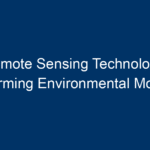The global landscape of diabetes management is undergoing a transformation, marked by rapid advancements and innovative therapies that promise to change lives. As researchers unveil groundbreaking findings, it’s essential to stay informed about the latest health news surrounding diabetes. Whether you’re a patient, a caregiver, or simply health-conscious, understanding these developments can empower you to make informed decisions. In this article, we’ll explore recent breakthroughs in diabetes management, highlighting effective strategies, new technologies, and emerging therapies.
What is Diabetes?
Before delving into the latest breakthroughs, let’s establish a foundational understanding of diabetes. Diabetes is a chronic health condition that occurs when the body is unable to effectively use insulin or produce enough of this vital hormone. Insulin helps regulate blood sugar levels, and when this process falters, it can lead to serious health complications.
Types of Diabetes
- Type 1 Diabetes: An autoimmune condition where the body attacks insulin-producing cells in the pancreas.
- Type 2 Diabetes: The more common form, often associated with lifestyle factors, where the body becomes resistant to insulin.
- Gestational Diabetes: Develops during pregnancy and usually resolves after childbirth but can increase the risk of developing Type 2 diabetes later in life.
The Current Landscape of Diabetes Management
Managing diabetes has traditionally involved lifestyle modifications, routine blood sugar monitoring, and medication regimens. However, advancements in research have led to several innovative tools and treatments. Here are some key breakthroughs currently making headlines in health news.
1. Continuous Glucose Monitoring (CGM)
One of the most significant advancements in diabetes management is the development of Continuous Glucose Monitoring (CGM) systems. These devices provide real-time blood sugar levels without the need for regular finger pricks.
-
Benefits of CGM: Users can monitor their glucose trends throughout the day, allowing for better-informed dietary and medication decisions. Studies have shown that CGM can lead to improved glycemic control and reduced risk of complications.
- Latest Innovations: Newer CGMs are smaller, more accurate, and can sync with smartphones and smartwatches, enabling users to track their data seamlessly.
2. Smart Insulin Pens
Insulin delivery has also seen advancements with the introduction of smart insulin pens.
-
How They Work: These pens can record insulin doses and send data to an app on a smartphone. This feature helps users stay organized and track their injections.
- Impact on Health: Smart insulin pens can remind users to take their insulin and provide historical data, leading to better adherence to prescribed regimens.
3. Artificial Pancreas Systems
Another groundbreaking development is the artificial pancreas, a system that automates insulin delivery.
-
What It Does: This technology combines a CGM and an insulin pump, automatically adjusting insulin doses based on real-time glucose readings.
- Recent Studies: Clinical trials have demonstrated significant improvements in blood sugar levels with artificial pancreas systems, providing a promising option for individuals with Type 1 diabetes.
4. Medications for Diabetes Management
The pharmaceutical landscape continues to evolve with new medications that offer alternative options for diabetes management.
GLP-1 Receptor Agonists
-
Treatment Overview: These medications mimic the effects of incretin hormones, which encourage insulin release and decrease appetite.
- Health Impact: Recent studies indicate that GLP-1 receptor agonists can lead to weight loss and improvements in cardiovascular health, making them a dual-purpose option for patients.
SGLT2 Inhibitors
-
Mechanism of Action: SGLT2 inhibitors work by preventing glucose reabsorption in the kidneys, leading to increased glucose excretion.
- Recent Findings: Research has shown that SGLT2 inhibitors not only manage blood sugar levels but also reduce the risk of kidney disease and heart failure.
5. Lifestyle Innovations
While technology and medication play crucial roles, lifestyle choices remain paramount in diabetes management.
-
Dietary Advances: Research into personalized nutrition is gaining popularity, focusing on individual dietary needs based on genetics and metabolic responses. This tailored approach could significantly impact glucose control and overall health.
- Exercise Programs: Incorporating regular physical activity is vital. Recent health news highlights innovative exercise programs that engage participants, making physical activity more accessible and enjoyable.
6. Artificial Intelligence and Machine Learning
The integration of artificial intelligence (AI) in diabetes management is another exciting frontier.
-
Predictive Analytics: AI algorithms can analyze vast amounts of patient data, predicting blood sugar fluctuations and providing actionable insights.
- Remote Monitoring: This technology facilitates telehealth consultations, allowing healthcare providers to monitor patients’ conditions in real-time and make timely interventions.
The Importance of Patient Education
With all these advancements, it’s crucial for patients to stay informed about their condition and management options.
Ongoing Education
-
Workshops and Webinars: Many healthcare organizations offer educational programs that delve into new findings, tools, and strategies.
- Support Groups: Engaging with others living with diabetes can provide emotional support and practical tips for managing the condition.
Actionable Insights for Diabetes Management
To take charge of your health in light of these breakthroughs, consider implementing the following strategies:
-
Stay Informed: Regularly check trustworthy health news sources for the latest advancements in diabetes management.
-
Consult Your Healthcare Provider: Discuss with your doctor which new technologies or therapies may be suitable for your individual needs.
-
Utilize Technology: Invest in a CGM or a smart insulin pen to streamline your diabetes management.
-
Focus on Nutrition: Work with a dietitian to create a personalized meal plan that best suits your metabolic needs.
- Stay Active: Find an enjoyable exercise routine that you can stick with long-term. Regular physical activity is essential for managing diabetes effectively.
Conclusion
The advancement in diabetes management is not just transforming treatment paradigms but also empowering patients to take control of their health. By harnessing the power of technology, medication, and education, individuals with diabetes can lead fuller, healthier lives. As you stay updated on the latest health news, remember that proactive engagement with these innovations is key to effective diabetes management. Embrace these breakthroughs, and consider how they can be integrated into your lifestyle for a brighter, healthier future.




